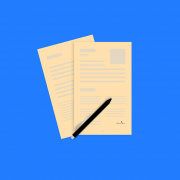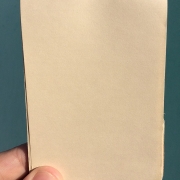Cheap term paper online for Sale
Students often struggle to complete their term papers within the time frames set by their classes, colleges, or institutes. If you’re in this situation, you’re probably searching for places that write a cheap term paper, right? You can reach out to us to order a cheap term paper from a professional term paper writing service. A team of overtrained term paper writers online, eager to hear from students in need of completing term papers, will be able to satisfy the desire of submitting term papers on time.
We provide only top-quality term paper writing service and custom term papers at our leading term paper writing business, so when you ask us to “write my term paper cheap,” we give you not only a pledge but a guarantee of a brilliant success in your term papers published.
Students from all over the world constantly contact us with questions such as “Can you write my term paper for me cheap?” and “Can you help me write my term paper online?” while others simply say “I need to hire someone to write my term paper.” Some students, curiously, inquire whether we have “free term papers.” Whatever request you make, we promise not to let you down in your search for a low-cost term paper writing service online.
Pay someone to write a cheap college term paper online!
Choosing the best alternative to complete your term papers instead of feeling stressed would become your best choice not only to relieve stress but also to send your term papers on time to your school, college, or university. It’s also worth mentioning that we’re a well-known online term paper writing service with satisfied customers who have taken advantage of our low-cost term paper writing service. Contact our customer service team for exclusive deals if you want to buy a term paper for a low price.
Why Should You Use a Low-Cost Term Paper Writing Service Online?
- Term paper writing facilities that are unique and of high quality are provided with complete confidentiality.
- Term papers are written by the best writers.
- We take several steps, such as using anti-plagiarism tools, to ensure the delivery of 100% plagiarism-free and original term papers. As a result, you can only obtain original term papers.
Because of the reliability and affordability of our online term paper writing services, we have become a common and dependable term paper writing company among students of various disciplines. You can get cheap term paper writing aid regardless of your course curriculum, education, or college. After we receive your term paper order, we’ll use our experience to craft the most innovative term paper possible, one that will impress even the most discerning professor! Your happiness as a result of using the best term paper writing service online makes us proud and more dedicated to serving you and others for a longer period of time.














 A
A 
 A
A  For many students, getting started with the
For many students, getting started with the  Our company is reputed as the best in providing
Our company is reputed as the best in providing  Every once in a while, we’re all blameworthy of allowing our keystrokes to flee with our musings in a continuous flow. Changing sudden spike in demand for sentences into clear articulations requires close consideration and expertise, and when it’s an ideal opportunity to set up your composition for an intended interest group, making it compact can be the contrast between drawing in the reader and losing their consideration. This doesn’t mean you need to stop to explain each sentence when you compose. As you read through your content before it’s considered finished, consider the accompanying advisements on the best way to take out
Every once in a while, we’re all blameworthy of allowing our keystrokes to flee with our musings in a continuous flow. Changing sudden spike in demand for sentences into clear articulations requires close consideration and expertise, and when it’s an ideal opportunity to set up your composition for an intended interest group, making it compact can be the contrast between drawing in the reader and losing their consideration. This doesn’t mean you need to stop to explain each sentence when you compose. As you read through your content before it’s considered finished, consider the accompanying advisements on the best way to take out  A
A  The
The 



 tips for an Excellent Speech writing
tips for an Excellent Speech writing
 How to prepare your class presentation
How to prepare your class presentation


